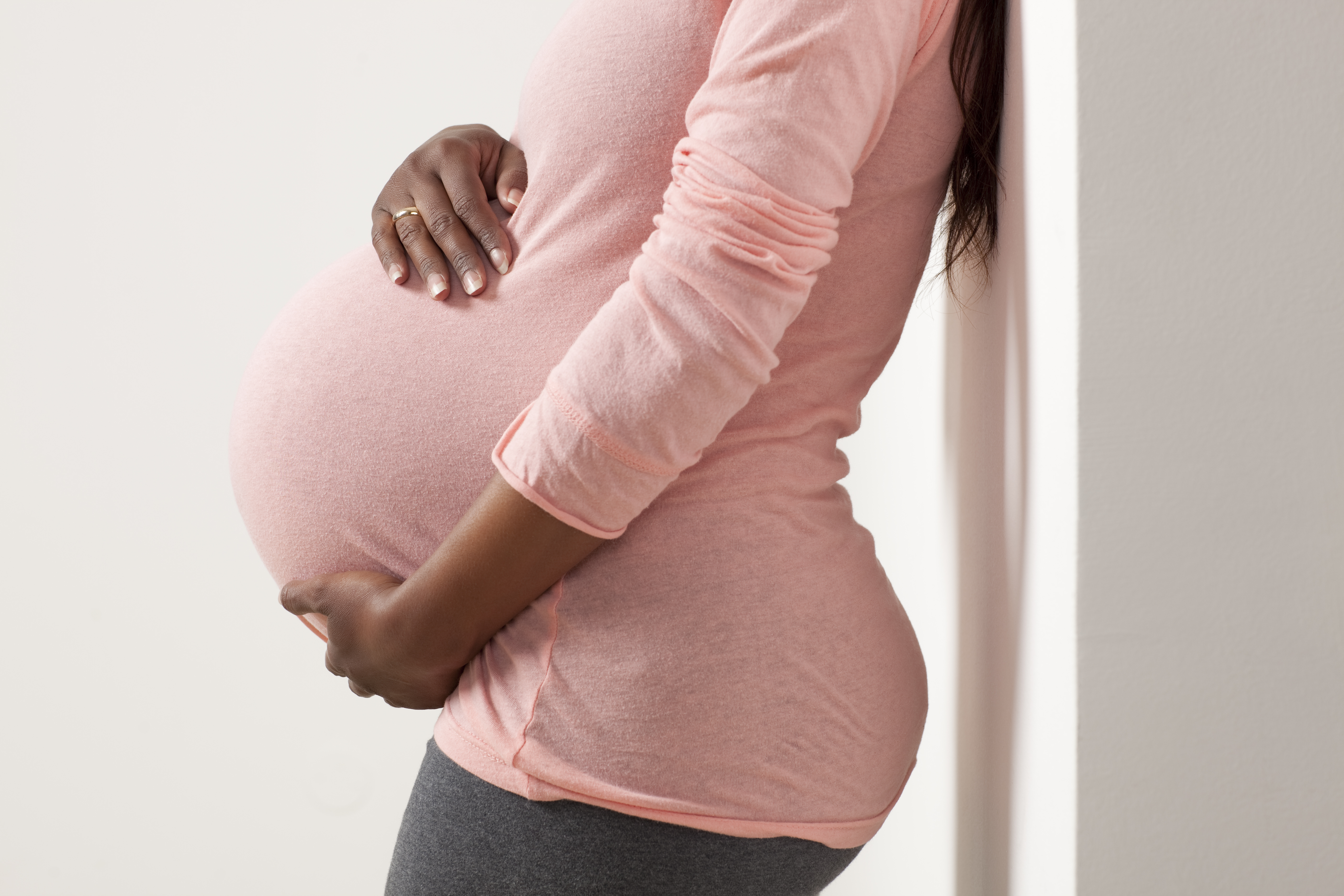Supporting Mothers at the Intersection of Violence & Racism

The week of April 11th-17th marks Black Maternal Health Week, a campaign that was led and founded three years ago by the Black Mamas Matter Alliance. The week serves as a time to amplify the voices of Black mamas and center the values and traditions of the reproductive and birth justice movements.
In the United States, Black women are 2 to 6 times more likely to die from pregnancy complications than White women. All too often, when looking at the disproportionate maternal mortality and morbidity rates among Black mothers, the issue of interpersonal violence (IPV) is left out of the conversation–an exclusion which can cost lives. We know that 43.7% of Black women have experienced physical violence from an intimate partner, which is significantly higher than the national average of IPV experienced by women of all races (25%).
As part of this week to amplify the experiences of Black mothers, I sat down with Megan Simmons of Ujima and Sevonna Brown and Farah Tanis of Black Women’s Blueprint to have a conversation about mothers at the intersections of racism and IPV– to identify the roots of this crisis, and uncover how we can begin to address it.
Black survivors are already less likely to seek health care for injuries resulting from IPV compared to White survivors, highlighting the lingering legacies of racism and discrimination in health care systems. When combined with the experience of IPV at home, where partners may restrict movement or the necessary funds to get care, many of these mothers end up not accessing care until far late into their pregnancy, or not at all. The current COVID-19 global crisis adds additional layers of complication, as not only is it stressful to live with the fear of catching COVID-19 during pregnancy, but expectant mothers could also be forced to shelter-in-place with violent family members or partners.
As this scenario is fraught with societal and cultural structures that seem almost impossible to undo, trying to find solutions is a very daunting task. Megan, Farah, and Sevonna emphasized that federal effort or legislation may not be the most effective approach. On top of the need for bipartisan legislator buy-in that would be difficult to create, the experiences and needs of Black mothers are too multi-faceted and rooted in the structures of our society for a single bill or “one size fits all” solution. Instead, we should be addressing these issues with locality in mind: addressing the individual experiences of Black mothers in neighborhoods, towns, and cities. Farah identified this approach as one that supports the creation of survivor-led, grass-roots and community organizing that is both by the people and for the people.
Doulas are one solution frequently suggested as a key strategy to improve maternal health outcomes. When asked about their potential role in trying to address this intersection, Sevonna, a doula herself, was quick to note that doulas alone can not be the ‘end-all’ solution. While doulas increase access to quality prenatal care to all mothers, most currently lack the necessary training to recognize signs of violence and respond to those in a trauma-informed manner. Sevonna emphasized that we should instead focus on the increasing proactive collaboration and partnerships with organizations who are experts in this field. No one or two hour long training could be comparable to the years of experience and knowledge that organizations like Black Women’s Blueprint possess in responding to and supporting expecting mothers through disclosures of violence. Doulas, and any other medical practitioners, should not alone be relied on as the sole source for addressing IPV among expecting mothers.
Farah additionally stressed that improving Black maternal health will require multi-sector partnership and collaboration, where advocacy and victim-service organizations can utilize their numbers, expertise, and passion together, and have a greater impact. She proposed the creation of a national technical assistance center that would offer expertise to local health programs which could either be founded by or partner with organizations that focus on Black maternal health – an idea perfectly balancing the benefits of local and national organizing to seize the necessary funding while maintaining the most effective scope of action. Farah also offered additional ways to help Black expecting mothers, both within and outside of maternal health spaces:
- Increased funding for the development and implementation of evidence-based prevention strategies
- Redefining terms surrounding violence and assault to be more inclusive of the various types of experiences survivors can go through (i.e. power-based violence, instead of GBV)
- Increased funding for the development of culturally-specific medical education
- Increased partnership with Black maternal health organizations
- Supporting the Black Maternal Health Caucus
Given the disparities of maternal health outcomes, IPV rates, and health outcomes of experiencing IPV, it is crucial that we learn from the community-based, public health models that show promise in promoting maternal health for Black women.
For more resources and information on Black maternal health and IPV, please visit:
- Ujima: National Center on Violence Against Women in the Black Community
- Fact Sheet: Black Women’s Maternal Health and Intimate Partner Violence
- Black Women’s Blueprint
- Sexual Abuse to Maternal Mortality Pipeline: Trauma-Informed Webinar Training Series by Black Women’s Blueprint
- Sexual Abuse to Maternal Mortality Pipeline: A Report by Black Women’s Blueprint
For those seeking resources on the intersection of COVID-19 and maternal health: https://www.essence.com/feature/black-mamas-childbirth-covid-19-coronavirus/





